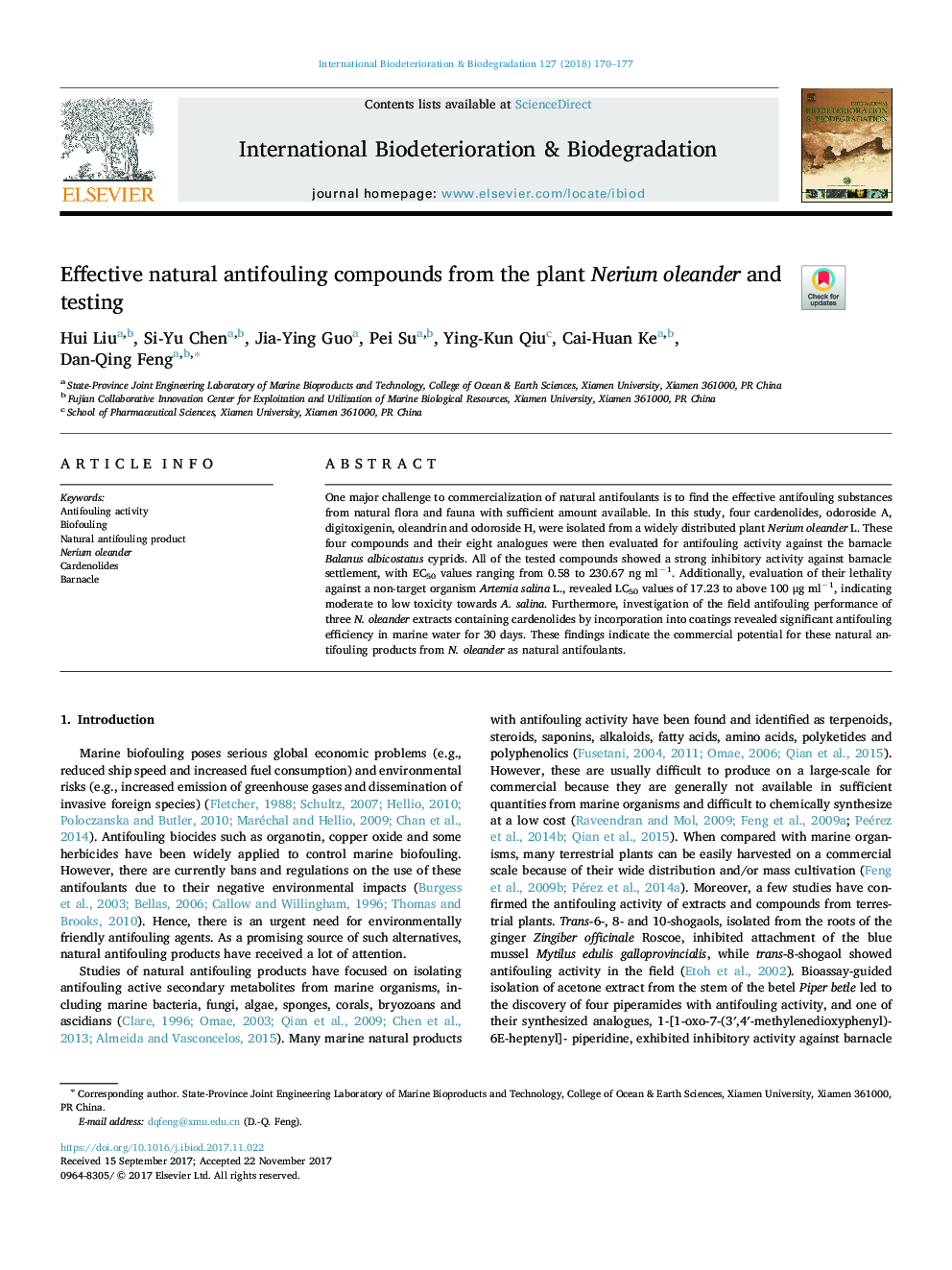| Article ID | Journal | Published Year | Pages | File Type |
|---|---|---|---|---|
| 8843949 | International Biodeterioration & Biodegradation | 2018 | 8 Pages |
Abstract
One major challenge to commercialization of natural antifoulants is to find the effective antifouling substances from natural flora and fauna with sufficient amount available. In this study, four cardenolides, odoroside A, digitoxigenin, oleandrin and odoroside H, were isolated from a widely distributed plant Nerium oleander L. These four compounds and their eight analogues were then evaluated for antifouling activity against the barnacle Balanus albicostatus cyprids. All of the tested compounds showed a strong inhibitory activity against barnacle settlement, with EC50 values ranging from 0.58 to 230.67 ng mlâ1. Additionally, evaluation of their lethality against a non-target organism Artemia salina L., revealed LC50 values of 17.23 to above 100 μg mlâ1, indicating moderate to low toxicity towards A. salina. Furthermore, investigation of the field antifouling performance of three N. oleander extracts containing cardenolides by incorporation into coatings revealed significant antifouling efficiency in marine water for 30 days. These findings indicate the commercial potential for these natural antifouling products from N. oleander as natural antifoulants.
Related Topics
Life Sciences
Environmental Science
Environmental Science (General)
Authors
Hui Liu, Si-Yu Chen, Jia-Ying Guo, Pei Su, Ying-Kun Qiu, Cai-Huan Ke, Dan-Qing Feng,
